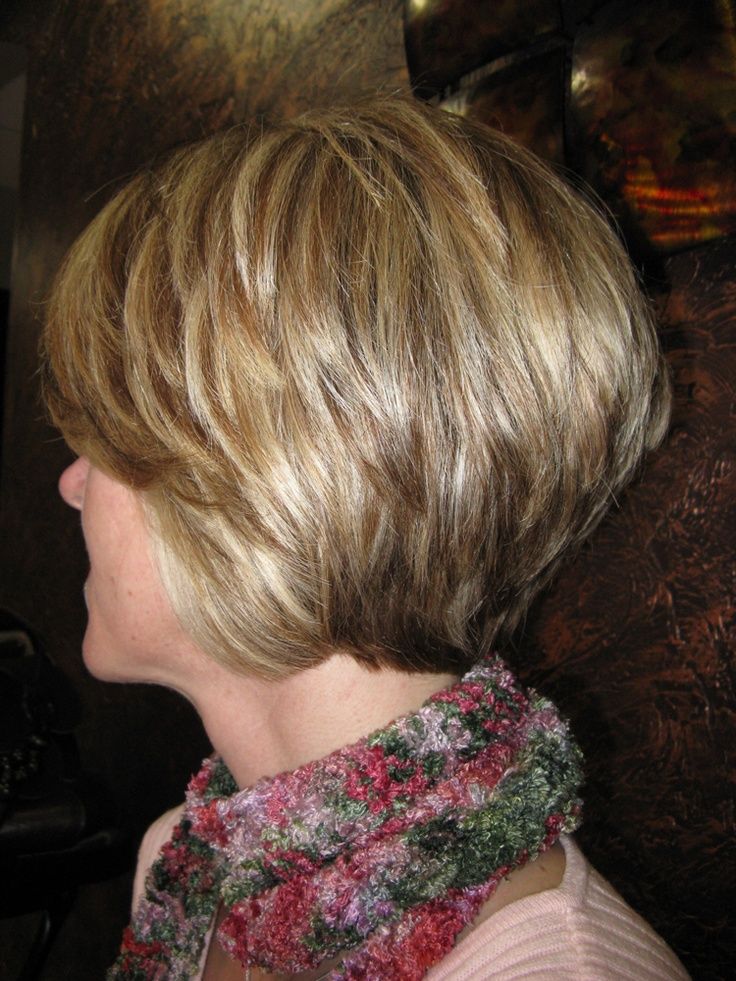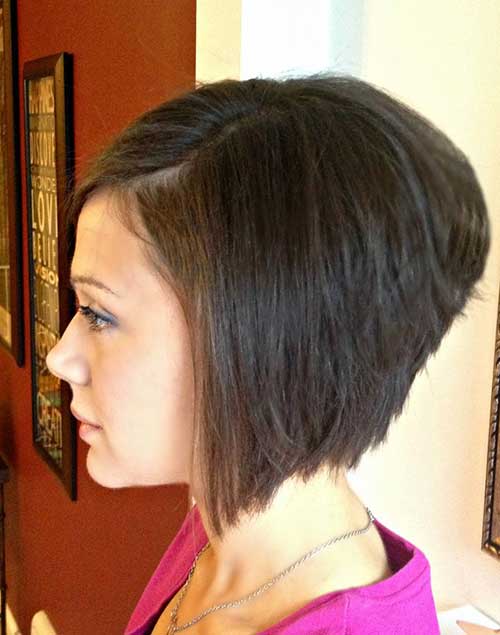


For instance, dull scissors might cut hair differently than sharp scissors. If you have no such distinction, then having the class makes no sense. If you were to legitimately have a Scissors (or Shearers) class, then you would need to differentiate how different Scissors (or shearers) cut hair. In real life, a barber may use scissors (or shearers) but you are not modeling that part of this, so it's superfluous to create a scissors (or shearers) class. Instead, a barber (or stylist) should be able to directly modify a human's hair cut (which let's keep it real-is really the length of hair here). I think it's overkill to define a scissors class unless you intend to model the action of scissors (which with your simple notions it is clear you do not intend to model what scissors actually do). The stacked bob is a shorter hairstyle that originated in the classic 1960s.It is characterized by the use of carefully trimmed graded layers to produce a rounded, full-bodied shape at the rear of the head.The stacked bob is a shorter haircut.The fact that stacked bobs may have a medium length, be extremely short, or be styled with adorable. Only the barber should be allowed to make changes to the Human's haircut (and a particular human could take the roll of a "barber"-including the person getting a haircut-hey people cut their own hair all the time!). There should be a subclass of Human called Barber (or perhaps Stylist). Even in such a case, it would be normal to use the possessive pronoun.You are missing some classes here in my opinion (not to mention these classes should be public-not internal as you have them written). "Get hair cut" would be extremely unusual without the article or a possessive pronoun and would strongly focus on some generic contrast between "hair" and something else. Flattop haircut, lumberjack shirt, overalls, work boots. In other words, "get" can be used semantically to refer to a result that can also be expressed using "have" (or "get," as well) in a true causative construction. Each week we take a deep dive into my stack of decades-old audio cassettes to share with you. I think the difference is that "get" also retains the meaning of "obtain," which is appropriate for this circumstance. This sentence is normal for American English and almost equivalent to "have your hair cut," despite the difference in structure.

It would normally be said with sentence stress on "have." It is directly comparable to "have your operation/your massage/your fun/your lesson." It presumes that whether or not the event should take place is in doubt or disputed and affirms that it should proceed despite this doubt or hesitation. This sentence does not use the causative construction and is grammatical however, it is marked and appropriate only for some purposes.

It could be used in a variety of situations. This sentence uses the causative construction, since "cut" is the second verb, and is perfectly normal. You could, however, say: "I am just having hair cut on the sides." In this case, the entire mass of hair is not affected. Give the layer cut in short hair and rock with any kind of outfit. Stacked bob cuts naturally give a voluminous look to the hair. In the case of a haircut, the presumption is that all the hairs on the top of the head will be cut, and so you must say: "I wish he'd get/have his hair cut. We highly recommend the cut to people whose hairline is thinning in the front. The rules of English usage normally require a personal pronoun to be used with body parts associated with a known body, unless you are referring to a mass noun and there is a contrast between all of the mass in the body and part of it (E.g., "I am having blood drawn" versus "I am having my blood tested") This sentence does use an English causative structure and is fully grammatical however, it is extremely odd and almost certainly does not convey the meaning intended. This sentence is not a causative construction in the strict sense of that expression since there would have to be an additional verb after "get/have." It is exactly comparable to "I wish he'd get/have a massage/the operation/a heart transplant."


 0 kommentar(er)
0 kommentar(er)
